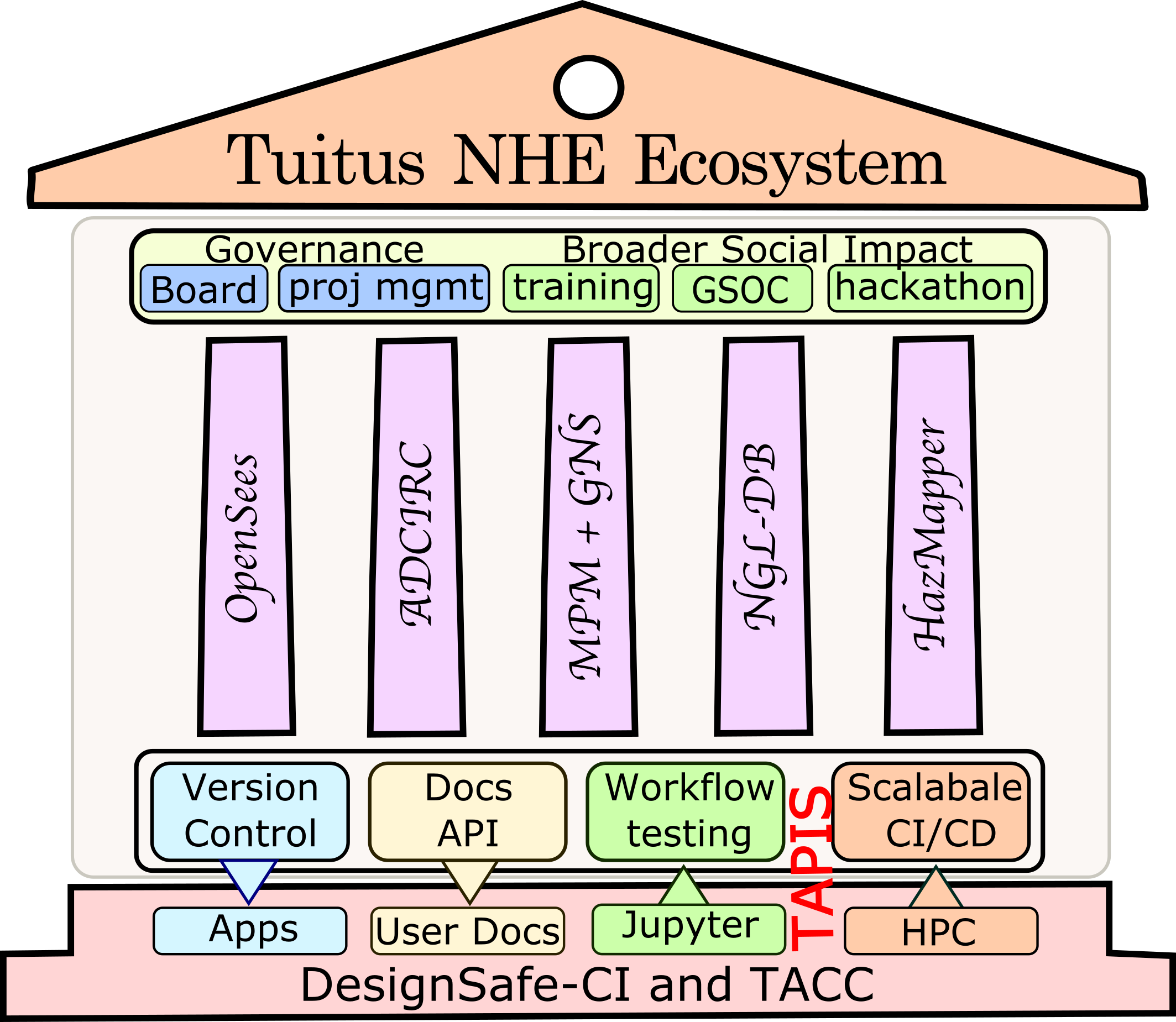Published on: 15 Sep 2022
Building an Open Ecosystem for Natural Hazard Engineering Codes
Natural hazards like floods, earthquakes, and wildfires threaten critical infrastructure across the United States. Advanced simulation tools developed by university researchers can help assess risk and inform policy decisions. However, many of these scientific software codes are created in an ad hoc manner without robust software development and testing principles.
The Tuitus Foundation, funded by the National Science Foundation’s (NSF) Pathways to Enable Open-Source Ecosystems (POSE) program, aims to create an inclusive, sustainable open-source ecosystem for natural hazard engineering codes. Dr. Kumar is leading this new project to promote best practices in open-source scientific software development.

Our project has three key goals:
-
Develop a unified interface and testing harness to improve integration and reproducibility of natural hazard simulation codes. This will allow automated testing across distributed high-performance computing environments.
-
Build a community governance model and provide training to onboard new open-source developers. We’ll host events like hackathons and engage student developers through Google Summer of Code.
-
Deploy tested codes to the NSF-funded DesignSafe Cyberinfrastructure used by over 6,000 researchers. This will increase access and real-world impact.
We’re utilizing the open-source Tapis framework to enable automated data and job management for high-performance computing. Tapis OAuth2 security allows us to access many different computing resources on behalf of users.
By combining cutting-edge continuous integration tools, literate programming approaches, and community building, we aim to significantly improve the quality and adoption of open-source natural hazard engineering software. This will lead to better decision-making and risk assessment at regional scales when disasters strike.
The Tuitus Foundation represents an exciting new paradigm for open-source code development and delivery in the natural hazards engineering community. We’re grateful to the NSF POSE program for supporting this novel approach to address critical technical and social challenges in building sustainable scientific software.